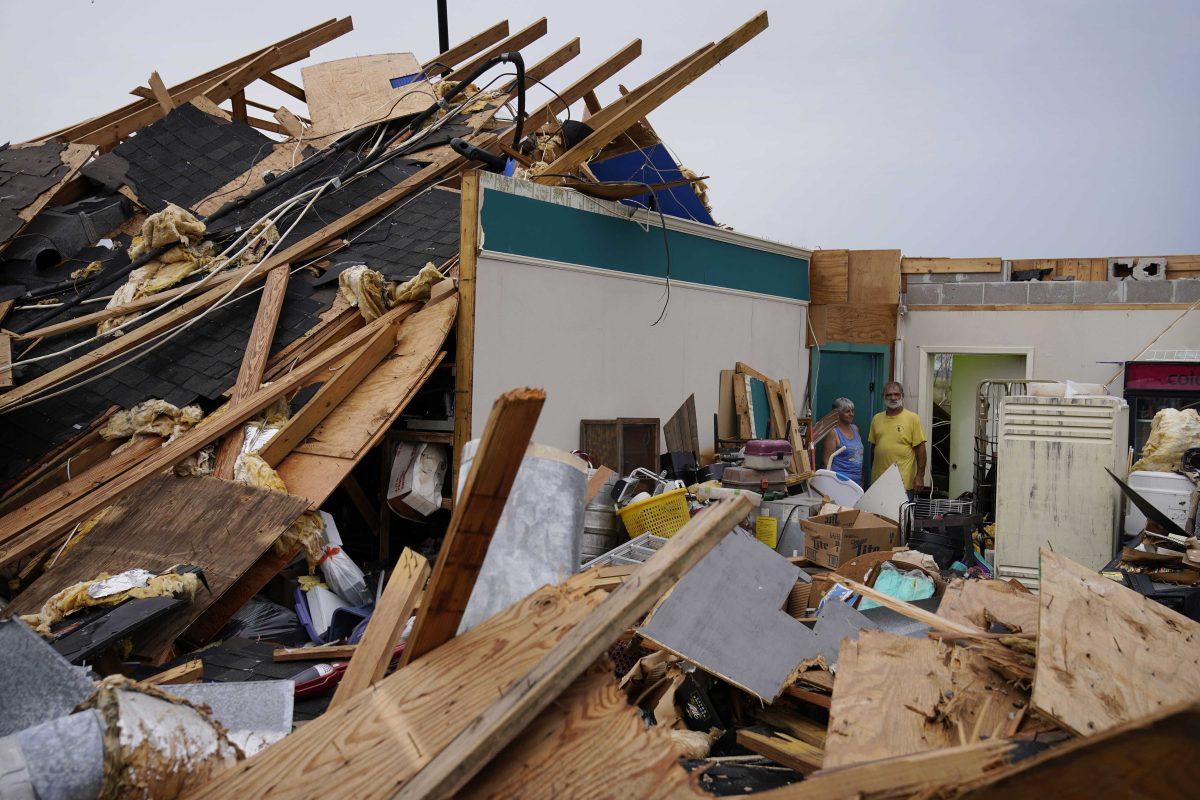Hurricane Ida’s historic landfall on south Louisiana last week devastated much of our nation’s coast.
At the time of writing, 82 people across the nation have died from storm-related injuries. Many of these deaths have been drownings in the Northeast, and nearly 30 of them have been fellow Louisianans. Until we fully restore power to our state, more people will undoubtedly die from excessive heat.
Homes in Louisiana were destroyed due to Ida. As a result, thousands of people left our state, some perhaps forever. Hourly workers go incomeless while waiting to return to work. In grappling with the damage, countless Louisiana residents have not only lost confidence in our state’s governance but our university’s governance as well.
Hurricane Ida revealed how poorly prepared our state was. But, unfortunately, it also showed how poorly prepared our university was.
While our university certainly cannot repair our state’s inadequate infrastructure and power grid, it can better inform its students on hurricane procedures and timelines.
The decision, for example, to shut down the school in phases was nothing short of asinine.
It’s true that, in practice, this is much easier said than done. For example, suppose the university cancels school to give its workers, faculty, and students time to prepare for a natural disaster. In that case, it can’t revoke these days off when the damage isn’t as bad as forecasted. So, school administrators and decision-makers must act carefully when dealing with these decisions.
However, our university has had more than a century and a half of experience dealing with hurricanes. Between 1860 and 2021, 56 hurricanes made landfall in Louisiana. 20 of these were Category 3 or greater, meaning they slammed Louisiana with winds of at least 111 miles per hour.
The university’s administration canceled school on many occasions, just like it did for Hurricane Ida.
We can now measure the damage of hurricanes well before they have touched our coast. We can predict each hurricane’s path, how much rain it will bring and what steps need to be taken to alleviate flooding, deaths, and economic impact.
Yes, the university must act carefully, but it must also act decisively.
We knew that Ida would come right through us. We knew it would hit our coast as a Category 4 hurricane. We had accurate estimates of both its path and damage. We have an endowment of hundreds of millions of dollars from which we can draw funds. Most importantly, we have students who need accurate information and resources to plan accordingly.
Yet, it took our administration well over a day after Ida had passed over Baton Rouge to decide to shut down through Monday, Sept. 6, leaving some students stranded and unsure of their long-terms plans.
For many students, especially low-income students, it can be challenging to operate with last-minute plans. Plane tickets are more expensive in times of need. Gas is harder to find. You might have to clear your schedule with your boss before evacuating the state.
The university should have announced on Friday, before the storm, that school would be canceled for a week, not on the Tuesday after the storm had passed.
We have so many resources available to predict how destructive a hurricane is going to be. Yet, we continue to muddle decisions, leading me to believe these errors were made from carelessness, not ignorance.
Hurricane Ida destroyed homes, businesses, and lives and my confidence in the university’s disaster handling. Yours should be too.
Samuel Camacho is a 21-year-old economics junior from Maracaibo, Venezuela.
Opinion: The university needed to plan sooner for Hurricane Ida
September 11, 2021
Guthrie Matherne, left, and Blakland Matherne, right, looks at what remains of their hurricane destroyed business in the aftermath of Hurricane Ida, Monday, Sept. 6, 2021, in Lockport, La. (AP Photo/John Locher)





